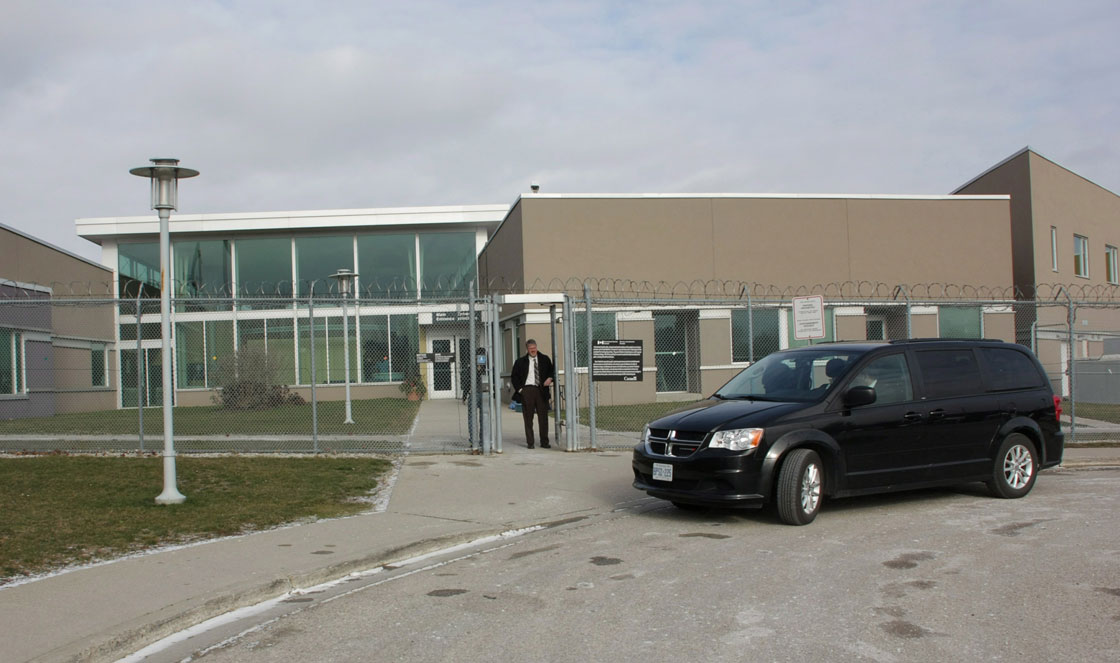TORONTO – A teenaged girl who killed herself in her prison segregation cell was highly unstable, showed sadistic tendencies and was one of the most difficult cases he had ever seen, a psychiatrist testified Monday.

Dr. Jeffrey Penn told the inquest into her death that only top-quality, sustained psychological care could have helped Ashley Smith overcome her extreme problems.
“She presented one of the more severe personality pathologies that I have encountered,” Penn said.
“She would have a period where she was making progress and then she would have to self-destruct.”
Smith, who had been teased mercilessly growing up, was emotionally immature, giggly, took pleasure in inflicting pain on others, and had only a limited capacity for remorse, Penn testified.
In some ways, he said, Smith hadn’t progressed beyond age two or three.
“This young woman is essentially a large tyrannical child who can’t tolerate limits, feels estranged and isolated from peers, unloved, unliked, and often hopeless,” Penn wrote at the time.
“At times, wants to be the best at being ‘bad’ and is succeeding.”
Penn first met Smith, who was then 18, on Nov. 6, 2006, just days after she was transferred to her first adult prison: Nova Institution in Truro, N.S.
The psychiatrist, on a contract to provide services for two hours a week at Nova, spent 35 minutes interviewing Smith through the food slot of her segregation cell – something prison staff deemed necessary.
His reaction on meeting her was, “My God, I don’t think she belongs here,” he said.

Get daily National news
“There should be a different track for this type of person.”
Penn described Smith as someone with borderline personality disorder who exhibited self-harming behaviour and was at times suicidal.
He prescribed sedatives and urged positive rewards for good behaviour.
Four days later, he saw her for 10 minutes – again through the food slot. She had been doing “much better,” he wrote.
The progress was short-lived. Smith smeared feces around, grabbed and spit at guards, and abused herself.
By mid-December, with staff at wits’ end, plans were made to transfer Smith to the Regional Psychiatric Centre in Saskatoon – something she wanted.
“It was a desperate situation. She was asking for more help. She said she was hopeless and was going to continue to act out to accomplish her goal of leaving Nova,” Penn said.
“It was looking dark and very grim.”
Penn testified he believed the Saskatoon facility would offer Smith a higher level psychiatric service than Nova could.
The inquest has previously heard from Allister Webster, a psychologist at Nova, who said he felt undermined and blindsided when Smith was transferred while he was on vacation.
Penn said he knew nothing about any therapeutic bonds Smith formed with anyone at Nova. Nor was he privy to her prison management plans.
He next saw Smith when she returned to Nova seven months later in July 2007 after more than a dozen transfers between various prisons.
“Ashley was dour, sullen, blunted in general, with occasional bursts of animation and humour,” he wrote.
Penn said he received no information on what had happened to her during the placements, which would have been “useful.”
“Certainly, I couldn’t gather that information through the food slot.”
Despite the problems, Penn said the mental-health system in prison is “better than people think,” although it could be improved.
Smith was an extremely tough case that needed the kind of help guards could not offer.
“The answer was going to be very intensive psychotherapy, but where? I don’t know,” Penn told the inquest.
Smith wanted out of segregation but feared being in the general population, he said.
She had “incredibly poor” social skills and an inability to get on with peers along with a strong drive for attention and to control her environment, he said.
She also had a strong need for arousal.
“When I’m bad, I get a feeling of excitement,” he said she told him, something he called disturbing.
Smith would end up at the Grand Valley Institution in Kitchener, Ont., where she choked to death in segregation in October 2007. She was 19.
The inquest continues Tuesday with a Nova parole officer expected to testify.







Comments